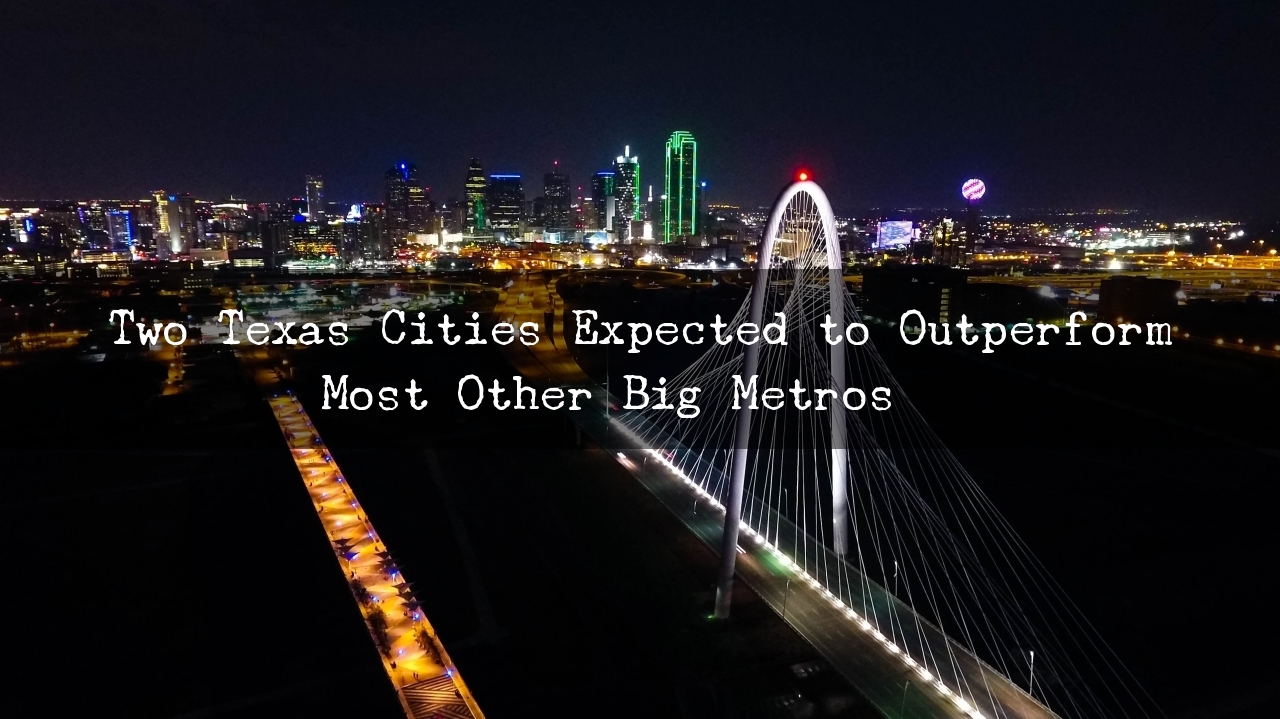Two Texas Cities Expected to Outperform Most Other Big Metros
Dallas and Houston’s economic stability are projected to be somewhat of an anomaly in the U.S. over the next several years, even as much of the world’s economic growth slows, according to research firm Oxford Economics. Its economic analysis projects that nearly two-thirds of the world’s major cities will see an economic slowdown over the next two years. Oxford Economics sees slowing gross domestic product growth in the 10 largest cities in the world.
Dallas and Houston trail only San Francisco for near-term economic success in the analysis of how America’s 10 largest cities will fare through a slowdown. The analysis projects Dallas’ GDP will grow at an average rate of 2.2% between 2020-2021, down from 3.6% from 2014-2018, according to Oxford Economics. Projecting out two more years to 2023, both the Dallas and Houston economies are forecast to grow at a 2.4% rate.
As the home of America’s tech industry and its countless highly skilled workers, San Francisco will continue to see growth outpacing the rest of the country even in a downturn. But what’s happening in Dallas and Houston that makes these Texas cities so well-suited to weather economic slowing?
According to the economists at Oxford Economics, these major Texas cities’ formula for success is nearly the exact opposite of California’s. In San Francisco, growing demand for computing power and high-tech services offsets California’s highly regulated economy and housing costs.
Texas, on the other hand, was one of only six states to add jobs in November. The Oxford researchers said it continues to boast a unique edge in the U.S. economy: a reasonable cost of living and minimal government regulation that allows its major cities to absorb and grow industries from other portions of the country. “The mix of both affordability and sturdy job growth has attracted new firms and residents,” the researchers wrote about Dallas. “This generates outperformance within locally-oriented industries, such as construction, retail trade, real estate and health care, to supplement the benefit of new companies moving in.”
Most recently, the Dallas-Fort Worth region has seen this play out in its burgeoning tech sector. Just this year, San Francisco-based ridesharing company Uber announced its decision to set up its largest office outside of California in Deep Ellum...

